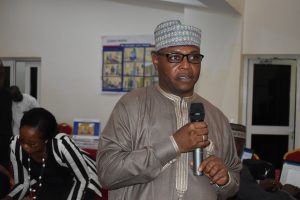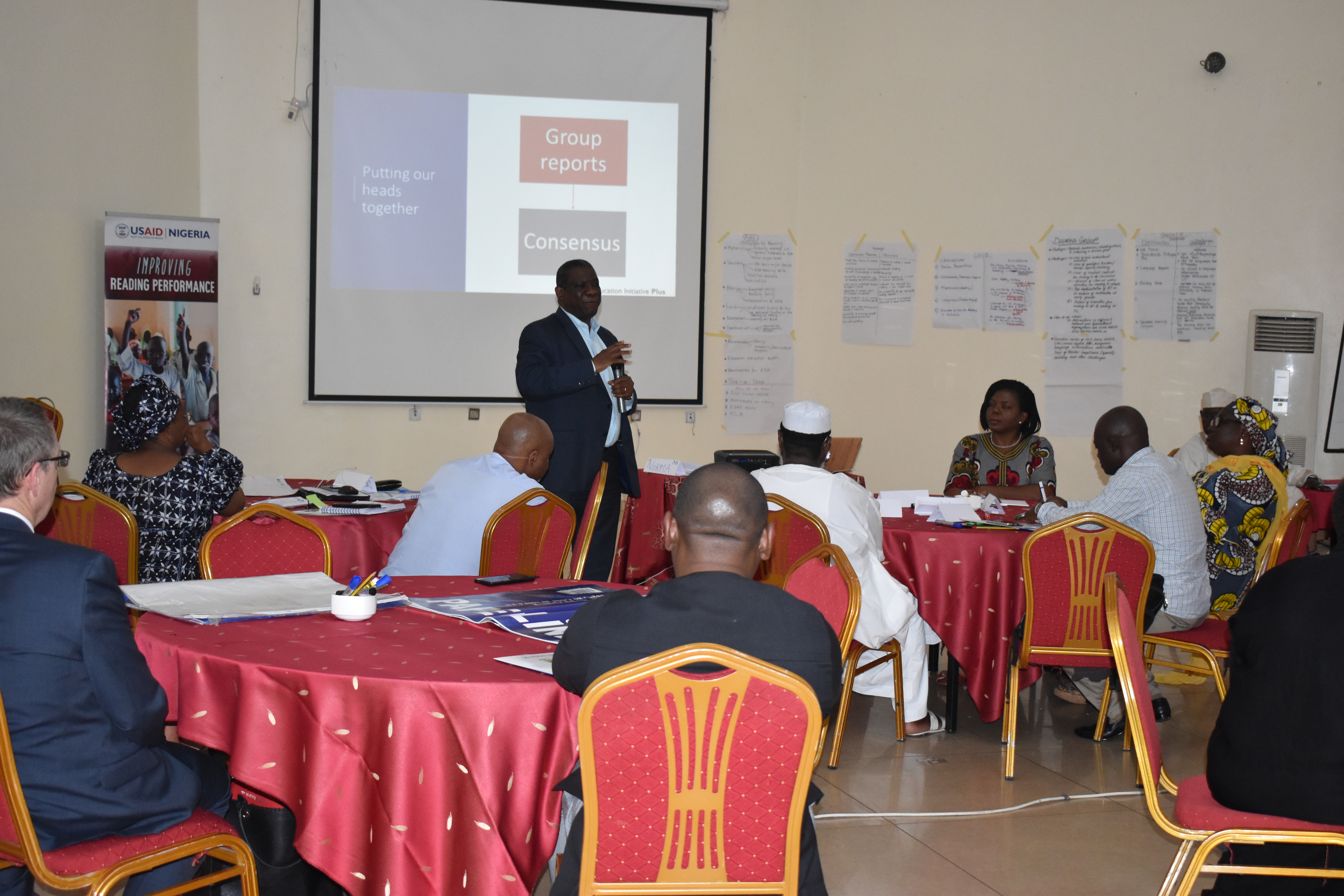Key education officials and experts from the Nigerian government have begun the process of developing a national reading framework for Nigeria.
The U.S Agency for International Development’s Northern Education Initiative Plus is supporting the Federal Ministry of Education through one of its agency, the Nigerian Educational Research and Development Council, to pioneer efforts that provide a blueprint for implementing early reading programs in Nigeria.
During a two-day inaugural meeting of the National Reading Framework Technical Working Group, participants discussed ways to implement the process to reflect Nigeria’s context.
The Technical Working Group consists mostly of key education stakeholders in Nigeria including the Federal Ministry of Education, Nigerian Educational Research and Development Council, National Commission for Colleges of Education, Universal Basic Education Commission, National Mass Education Council, National Council for Nomadic Education, academia, World Bank, British Council, Reading Association of Nigeria and others.
If this succeeds, Nigeria will join other African countries like Malawi, Zambia, South Africa, Senegal and Eritrea who already have national reading frameworks.
Having a national reading framework also provides a structure for Nigeria to report on Sustainable Development Goal 4.1 which seeks to ensure that all girls and boys complete free, equitable and quality primary and secondary education leading to relevant and effective learning outcomes by 2030.

Representative of the Nigerian Educational Research and Development Council, Dr. Garba Gandu
Representative of the Nigerian Educational Research and Development Council Dr. Garba Gandu said Nigeria is ready to join the global movement on reading and having a framework will track reading outcomes for children.
“The national reading framework will produce a document policy that address issues of curriculum development, pedagogy, teacher training and instructional materials for reading in Nigeria,” said Gandu.
USAID’s Education Program Manager Olawale Samuel said the agency will continue to support efforts in Nigeria to provide evidence-based guidance on how best to develop strong reading skills both inside and outside the school.
Samuel said involving international partners in the process is important. “That way they can use their resources to replicate our early reading activities and scale up to other states in Nigeria.”
Education Specialist for the World Bank Dr. Tunde Adekola said talks are already ongoing with the Northern Education Initiative Plus to scale up its reading activities to cover all 14 states in North East and North West Nigeria.
Adekola said a national reading framework will state clearly the policy, learning and resource environments necessary for states to implement reading programs.
[perfectpullquote align=”right” bordertop=”false” cite=”” link=”” color=”” class=”” size=””]“The World Bank will give this process all the necessary support and use its funds where necessary to support improved learning outcomes for children.” – Dr. Tunde Adekola[/perfectpullquote]
Northern Education Initiative Plus Acting Chief of Party Nurudeen Lawal said the inaugural meeting was the official first step for the Nigerian Educational Research and Development Council to produce a world-class national reading framework for the country.
“We want the framework to meet expectations around how we should build educational systems to support more Nigerian children to improve their reading outcomes,” Nurudeen said.
Comments are closed.


